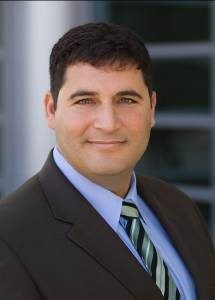
How Do You Monitor a Dash? Evaluating Cash Equivalent Funds
October 8, 2018
Participant Corner: Skip the Line, But Don’t Skip the Match
October 8, 2018Hey Joel! – Answers from a recovering former practicing ERISA attorney
Welcome to Hey Joel! This forum answers plan sponsor questions from all over the country by RPAG’s in-house former practicing ERISA attorney.
Hey Joel, My prospect is a 501(c)(3) organization that is not affiliated with a church or school. Are they eligible for a 401(k) plan? Are there any benefits over a 403(b) plan?
–Contemplating in Kansas
Dear Contemplating,
Contemplate no more! A 501(c)(3) organization is a nonprofit organization and can sponsor either a 401(k) plan or a 403(b) plan. In 1996, the law changed allowing nonprofit organizations to choose either the 401(k) or 403(b) plan for their employees. Here are some key differences between the two types of plans:
- Unlike 401(k) plans, 403(b) plans are not subject to nondiscrimination testing requirements for salary deferral contributions. The nondiscrimination testing rules that apply to 401(k) plans sometimes require that salary deferral contributions be returned to highly compensated employees due to the results of nondiscrimination testing. This does not happen with 403(b) plans.
- Annual limits are the same for both a 401(k) plan and 403(b) plan, except that the 403(b) plan may elect an additional form of catch-up contribution for participants who have 15 years of service, giving participants more flexibility.
- 403(b) plans must follow the “universal availability” rule for eligibility to defer salary, meaning that if an employer permits one employee to defer salary into a 403(b) plan, they must extend the offer to all employees.
- Some nonprofit organizations have established 401(k) plans in recent years, as the 401(k) is more well-known to their employees.
Hopefully that sheds some light on the differences between a 401(k) plan and a 403(b) plan.
The ERISA Wizard,
As a former practicing ERISA attorney Joel works to ensure that plan sponsors stay fully informed on all legislative and regulatory matters. Joel earned his Bachelor of Arts from Tufts University and his Juris Doctor from Washington College of Law at the American University.
*If you have a question for Joel, please send it to your plan advisor. Maybe it will be featured in a future issue!





